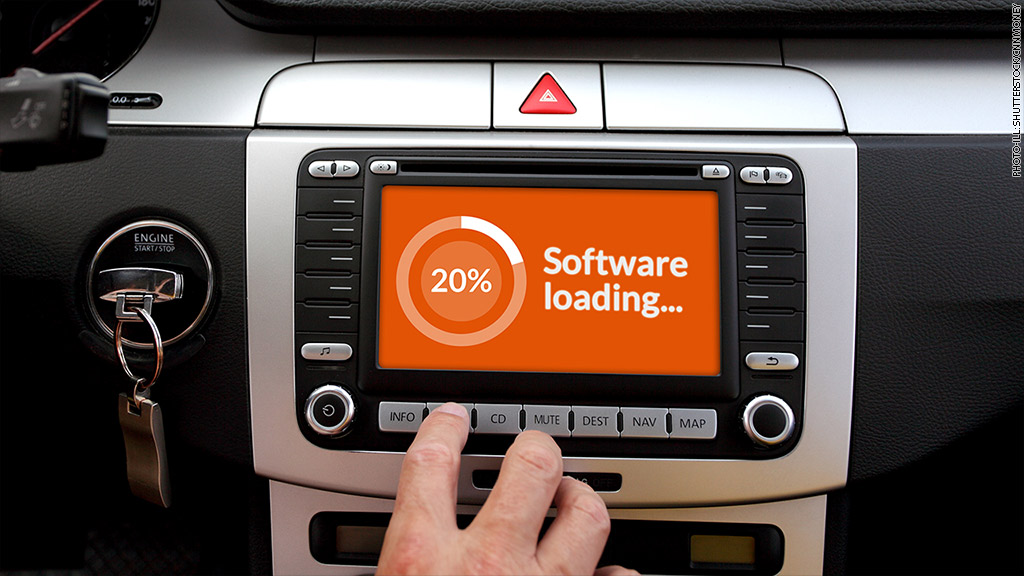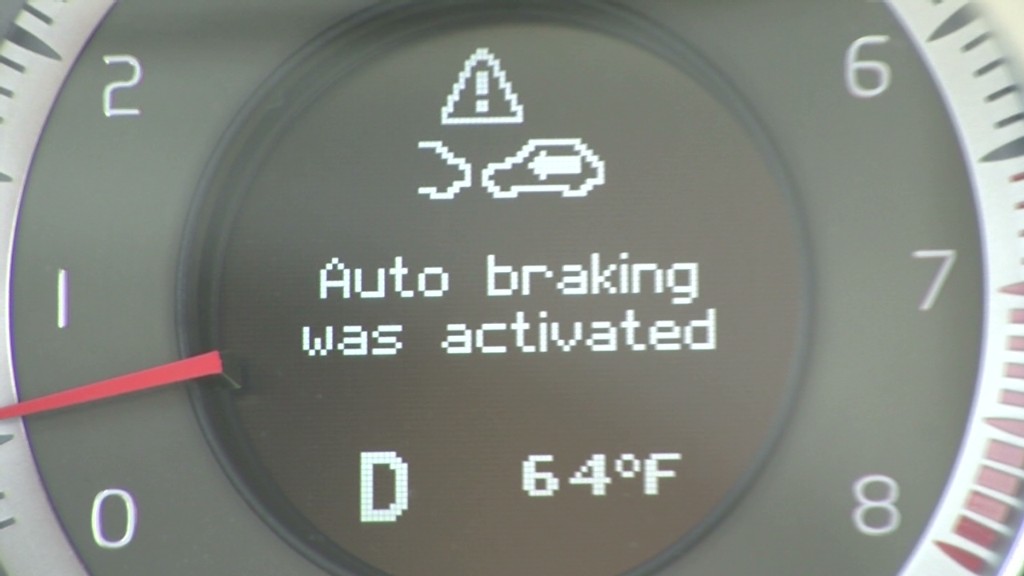
Those annoying "Update Required" pop-ups on your smartphone and computer will soon be in your car too.
Cars are already high-tech devices. Dozens of microprocessors control your steering, acceleration and more. It's gotten to the point that Toyota (TM) engineers joke they only slap on wheels to keep the computer from scraping the ground.
The next generation fleet is made of wirelessly connected cars, which presents a new opportunity: A vehicle that improves over time.
What happens if an auto maker figures out how to better calibrate internal parts to increase horsepower and fuel efficiency? It'll just push out a software update.
The relationships between you, your car and its maker are about to change. Auto manufacturers, suppliers and their software consultants gave CNNMoney a peek at the future they're building.
Fewer auto recalls. A faulty device might get fixed without ever taking it back to a dealer. Remember the software glitch that stalled Toyota Prius cars back in 2005? In the future, click "Accept Update" and you're set. (Faulty physical devices, like GM's ignition switch, are another story.)
Expect security updates. Get ready to download the latest version of your seat belt's antivirus software.
As computers, cars can be hacked. Much like Microsoft (MSFT) issues updates to its Windows operating system, patches to automobile software bugs will prevent hackers from hijacking your vehicle mid-drive.
Say hello to auto apps. Your car's dashboard will soon function like a tablet, running all sorts of apps -- navigation, weather, social media -- within the "infotainment" system. That means auto companies must develop their own version of the Apple (AAPL) iTunes app store or Google (GOOG) Play store.

The question now is, how exactly do you pull this off? Security updates could be optional by default. But what if they're dangerously urgent? Then there's the matter of how and when you download them. Can you do it while driving without worrying about the car shutting off? And updates sometimes make computers buggy. Will it be unsafe to drive?
The auto industry hasn't yet figured these out, said Scott Morrison, who oversees car app engineers at CA Technologies. (CA)
"Security patches are something that haven't been part of the auto manufacturers' lexicon," Morrison said. "This is going to require a radical change in technology and in the process."
Related story: Biggest auto recalls ever
Meanwhile, auto parts companies are building new tools with apps in mind. Continental, one of the world's three major auto parts suppliers, hopes to make the inside of your car more interactive.
"Today with my cell phone, I have apps that tap different parts of my phone to give me added value," said Tejas Desai, Continental's head of interior electronics for North America. "That level of functionality is not in a car today. That's going to come."

